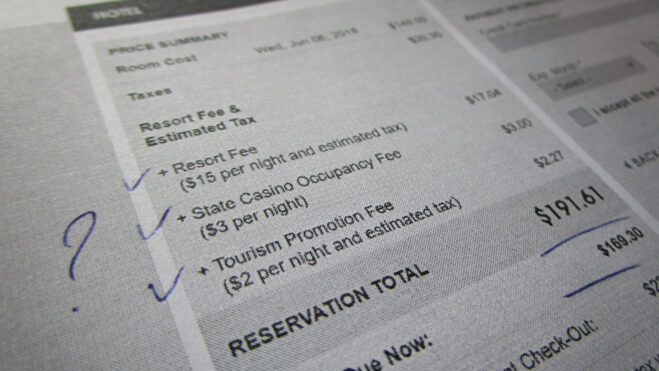There’s More To Gambling VIP Programs Than Horror Stories — Here’s What You Haven’t Heard
While media headlines highlight gambling horror stories, the typical reality is much different
12 min

Look overhead in the world of online gambling and you can see it clearly: Vultures are circling, and the main course is VIP programs. These white-glove and red-carpet services for high rollers and big spenders have sparked all manner of mainstream media coverage, and none of it has been good, flattering, or anything short of damaging.
By now, everyone in the industry knows the stories: Amit Patel, the former Jacksonville Jaguars employee who stole $22 million from the team to fund his gambling habit; Sam Antar, the Crazy Eddie scion who lost $30 million to BetMGM over a six-month period; Lisa D’Alessandro’s husband, who gambled away his family’s money; and Kavita Fischer, a psychiatrist who accumulated six-figure losses and spiraled into debt before eventually finding a 12-step program.
These are, without question, indefensible black marks on the industry.
At least three of the above have filed lawsuits, all claim predatory VIP hosts lured them and their loved ones to ruin, and — perhaps most notably — all four stories rose out of the gambling media muck and into the mainstream press. It’s no wonder one of the pillars of the proposed SAFE Bet Act is to do away with VIP programs.
Clearly, VIP programs need to go.
Or maybe … not. We’re not here to defend bad actors, but there’s another side to this story that nobody’s talking about in the media, probably because gambling is, was, and always will be labeled a “vice.”
Gambling rarely gets the “other side” treatment. But what you’re about to read is that other side of this story, told by gamblers, operators, VIP hosts, and problem gambling experts.
The VIP reality check
For all the nightmare scenarios making headlines, the actual day-to-day reality of most VIP programs is remarkably … well, unremarkable.
Dillon Borgida, who leads the VIP program at Underdog Fantasy after stints at industry giants FanDuel, William Hill, and DraftKings, brings a clear perspective to the current debate.
“It’s such a more nuanced discussion than what’s happening,” Borgida said. “I see people on the anti-VIP side saying gambling is terrible, and then you see the complete opposite perspective from inside. I have seen both sides, both sides exist in the ecosystem, but it’s not the VIP programs that are creating the issues.”
Borgida estimates there are “tens of thousands” of VIPs across the industry at any given time, with the total number over the past five years potentially reaching “hundreds of thousands if not in the millions” as some commercial sportsbooks redefine or broaden the classification.
And these VIPs — both on the sports betting and casino side — aren’t necessarily who you might expect.
“It’s not the hedge fund guy. Those guys are all using bookies,” said Borgida. “It’s the guy that owns 15 gas stations locally or took over their parents’ business, or got some sort of inheritance. They don’t know gambling Twitter exists. They probably don’t even know these [anti-VIP program] articles are happening.”
Meet the VIPs
Take the case of a 26-year-old New Jersey gambler who’s been in a VIP program with one of the major sportsbooks for about a year and a half. His path to VIP status started with a simple email notification and a trial period to assess his play patterns.
“I got an email from them letting me know I’d be in a trial period if I wanted to, for their VIP program,” said the bettor. “Then they’d rate my play in that trial period and determine if I’m worthy to be there in their VIP category.”
The young VIP said he wagers “a couple thousand” monthly on sports, with his casino activity pushing his total monthly wagering into the “five figures” range, and points out that he plays “a lot of casino.”
But when it comes to the supposed predatory nature of VIP programs, his experience tells a different story.
“No, I’ve never felt pressure or anything like that,” said the VIP. “Never any excessive texts. It’s all kind of like, ‘Hey, we have this if you’re interested, but no worries if you’re not.’ Sometimes it’s a boosted parlay option or something like that, sometimes it’s just their normal advertising. But they’ll text me about it because I have that VIP host.”
Cal Spears, who holds VIP status at both DraftKings and FanDuel (and is, full disclosure, a co-founder of the company that operates this website), shares a similar experience of minimal interaction when it comes to actual gambling across his decade-long time as a VIP.
“There’s no pressure to gamble,” he said. “I don’t even talk to them that much. Every once in a while they’ll put some bonuses in my account.”
For him, the VIP relationship serves a more practical purpose.
“If you just need stuff done, like if you have customer service needs, the VIP rep has been valuable for me,” said Spears.
The above came in handy for Spears recently, when he went to his DraftKings rep when he was experiencing issues logging on with Starlink due to geolocation errors.
“Quite helpful,” Spears said.
Another longtime DraftKings VIP we spoke with was even more blunt about his relationship with his host — or, in this case, the lack of a relationship.
“I never asked the host for anything,” he said. “And they almost never reach out to me. No joke — I don’t even know who my host is, they change all the time. And it’s not like I’m not using the app. I gamble probably over $10,000 a month in the casino. Back when this all first started, they’d sometimes give me a few hundred in bonus dollars, but I could not tell you the last time that happened.”
The other side of the desk
So if VIP hosts aren’t spending their days preying on vulnerable gamblers, what exactly are they doing?
One VIP executive with years of industry experience paints a very different picture than what we’re seeing in lawsuits and negative press.
“I think that’s the narrative that gets painted, and couldn’t be further from the truth,” said the executive. “While a host works for the company and wants to drive revenue for the business, they want long-term sustainable play from a customer. And if you crush them in the short term, you’re going to lose that customer.”
The executive described how VIP relationships typically begin by establishing parameters that work for both sides.
“The first thing we do when someone enters a VIP program is try to understand how they want to play, what they’re looking to do, and what they’re comfortable with,” said the exec. “That may be setting a self-limit or might be like, ‘Yeah, about $10,000 a game, and if you want me to tap you on the shoulder if you’re doing more than that, let me know.'”
Borgida, of Underdog, stressed the rigorous training that VIP staff undergo to handle these relationships responsibly.
“There’s no team within an operator that gets more training on responsible gambling, more training on anti-money laundering, more training on how to deal with customers than the VIP team,” said Borgida.
Regarding the widely publicized text exchanges showing VIP hosts seemingly encouraging problem gambling behaviors, Borgida was unequivocal in his response.
“None of that is taught, none of that’s part of the job,” he said. “I can’t imagine that person’s even getting compensated for it. That’s just someone being bad at their job. Nine times out of 10 when a host thinks things might be getting out of hand, the host will escalate it to the responsible gambling team.”
For a sense of scale, the anonymous VIP executive estimates a typical host manages “between 150 and 250 players.” But the day-to-day interaction isn’t nearly as intensive as critics suggest.
“You’re actually only interacting frequently with 10 percent of them,” said Borgida. “Another 90 percent of them are really either them coming to you with asks, or you going to them with offers, and those are not that frequent. It might be once a week, once every couple weeks.”
Some operators do maintain a more focused approach for their highest-value players.
“Some companies have implemented higher-end hosts that might manage, say, the 30 biggest players on the platform,” said the executive.
And in these cases, verification becomes more stringent as stakes increase.
“Anyone that’s playing at that level, you have the source of funds on file, you know exactly what they do for a living,” said the executive. “And a lot of players, once we ask for everything, disappear.”
Perks and perceptions
So what do VIPs actually get? Free cars? Tropical vacations? Access to a secret gambling illuminati?
Not quite.
The 26-year-old VIP mentioned earlier described his benefits as a mix of customer service advantages and occasional entertainment opportunities.
“If I have any questions or anything like that, I can go directly to them, I don’t have to wait for customer support,” he said. “I get access to some better promos, and more personalized promotions based on my play. I’ve actually got invited to some of their hospitality events, I’ve been to a [New York] Rangers game with them.”
Spears — who has risen to and maintained his VIP status through his DFS play — was taken to a Tennessee Titans game against the Colts in Indianapolis by DraftKings in what can only be described as a first-class manner.
“We went from the private airport in Nashville with the COO of the Titans and all their partnership people,” Spears said. “That was an awesome experience.”
These perks, rather than being exploitative, are viewed by the VIPs as legitimate benefits of customer loyalty. In fact, when discussing the bonuses and special offers that critics have characterized as manipulative, Spears offered an unsurprising — to the ears of the VIP hosts and execs — take.
“I wish they gave me more,” he said.
And there’s some irony: The biggest customer complaint at VIP programs isn’t about feeling exploited — it’s about not feeling special enough. They want more access, more touch points, more reason to feel like they’re being taken care of.
“I would say there’s really not much of an advantage at all to being a VIP. I don’t really feel like a VIP. I don’t really feel anything special, to be honest with you, at all,” said one longtime DraftKings VIP.
The VIP executive confirmed this reality.
“You are 100 percent right. That is the most common complaint,” said the executive. “Not enough interaction.”
Lost in translation
Kevin Smith, founder and CEO of White Glove Bets, believes the industry has fundamentally misunderstood its high-value customers.
His company specializes in connecting high-stakes players — those betting six figures on individual games — with operators willing and able to handle such action.
And he’s not sure the industry, as it stands, knows how to handle them correctly.
“I think fundamentally a lot of these problems just stem from the fact that operators still don’t know how to treat and deal with these guys,” said Smith. “These guys have egos. They’re not looking to bet $200k on the Eagles because they got an edge. It’s because they want to brag to their friends that they’ve got a six-figure bet on the Super Bowl.”
The gambling patterns of these high-rollers also follow predictable cycles that operators often misinterpret.
“A guy might get hot, win three or four bets in a row. Nine times out of 10, guess what happens the next month? He loses three or four in a row,” Smith said. “But so many of these operators get skittish and cut them off before they can recoup their losses.”
Despite advocating for better VIP treatment, Smith emphasized that responsible gambling safeguards remain essential to the equation.
“You have to have responsible gaming components to what you’re doing anytime you’re facilitating any level of betting, but certainly at the level that we are,” said Smith.
He believes the current host-to-client ratio is far too high for proper personalized service, which results — in at least some cases — in VIPs who just feel like regular ‘ol “P’s.”
“Do you not think MGM, Caesars, FanDuel, DraftKings couldn’t scale up to where they’ve got legitimate true VIP hosts where they’re managing 25 to 50 at a time, not 300 or 1,000?” said Smith.
The oversight gap
Of course, the high-profile cases that have dominated the headlines happened for a reason. No one we spoke with is claiming the system is perfect or that the figurative stakes aren’t high.
The anonymous VIP executive acknowledged that systems can fail, particularly when it comes to determining the source of a player’s funds.
Discussing the Jaguars case involving Amit Patel, the executive pointed to a specific breakdown in the verification process.
“Source of funds would have been the major [issue], like there was a miss here from a supporting department,” he said. “He clearly didn’t have income that would allow him to lose over $20 million. I have no firsthand knowledge, but I would say this falls somewhat on VIP, but I think more on the enhanced due diligence, fraud processes, the background checks.”
In response to such incidents, operators like Underdog are implementing additional safeguards to prevent similar failures.
“We only let you be a VIP if you’re above the age of 25,” said Borgida, describing one of several “intentional changes” Underdog is making that is designed to get ahead of potential issues.
Their approach includes comprehensive vetting before players ever join the program.
“We’re going above and beyond when it comes to source of funds and anti-money laundering,” Borgida said. “We are actually running a background check before they get into the VIP program. We’re trying to figure out their occupation, income, all of it before they get into it.”
The monitoring doesn’t stop once players are accepted.
“There’s touch points every couple months even to players that are seemingly fine,” said Borgida, referring to either casual wellness checks by hosts or more formal reviews by the responsible gambling team.
In his decade of experience, Borgida said he has personally dealt with only two situations where there was heated discussion back and forth between a gambler and a host over whether or not there was a serious RG issue. He also noted that Underdog’s team had already restricted “five people this morning from VIP” due to responsible gambling concerns.
“Most of these situations are very clear cut,” said Borgida. “Player makes a comment, you escalate to RG, you restrict the account,” he said. “Most of the time it’s pretty cut and dry, which is why these stories that do come out are just so salacious and people grab onto them, but it’s just not reality.”
A middle ground perspective
Keith Whyte, a veteran in the responsible gambling field with 30 years of experience and the founder of Safer Gambling Strategies, offers a perspective that challenges both the industry narrative and its critics. Contrary to most media portrayals, Whyte doesn’t see VIP programs as a bad seed from birth.
“I don’t think VIP programs are inherently bad at all,” said Whyte. “There’s a lot of evidence across a lot of industries that these keep customers happy and coming back. Gambling is a little bit of a special case, but I totally believe there’s no reason that they’re inherently bad.”
He emphasized that the critical factor is proper implementation, and how a well-structured VIP program serves as a relationship-builder rather than simple revenue extraction.
“How they’re being run, how they’re being supervised, and really what the goal is,” said Whyte. “A well-run VIP program is probably more about developing a long-term relationship with the customer.”
Drawing on his extensive industry experience, he highlighted the natural alignment between responsible gambling and customer service.
“I was always taught both in the alcohol field and then 30 years in the gambling field, that responsible gambling — and responsible drinking — was simply good customer service,” he said. “Helping a customer have an enjoyable experience is never about extracting as much money from them as quickly as possible. The lifetime value of a customer — the customer who gambles responsibly — their lifetime value is better to the company than someone that comes in, blows a lot of money, and crashes out in months or weeks.”
The transparency problem
But Whyte identified a significant issue hampering public understanding: the industry’s reluctance to share data about VIP programs.
“These companies by now should have years’ worth of data to prove [responsible practices], and unfortunately they don’t, they won’t, they don’t ever talk about it,” said Whyte.
This lack of transparency creates an information vacuum with predictable consequences.
“If you don’t put the data out there, if you don’t talk about this stuff on the record, then you allow anti-gambling folks to create their own narrative,” Whyte said. “You allow lots of regular people to have suspicions.”
Regulators, according to Whyte, will inevitably start demanding more information — all the more reason to bring VIP programs into the sunlight.
“I think it’s well within the regulator’s remit to start asking what proportion of your revenue comes from VIPs in our state,” said Whyte. “For that reason alone, I think the operators have to start talking about this. I mean, you’ve got to be transparent and open, especially when it comes to gambling. There’s a lot of ways to talk about these programs without compromising competitive trade secrets. I would get ahead of this if I were them.”
Meanwhile, industry insiders worry about the potential consequences of overregulation. Borgida highlighted the unintended effects of UK regulations that reportedly reduced VIP programs by 70-90%.
“You’re just pushing people offshore,” he said. “You’re pushing people into the black market, into the gray market, and out of the regulated market.”
Finding balance
While sports betting certainly requires appropriate regulation and responsible gaming measures — no argument here — the experience of actual VIP members suggests that the most alarming headlines represent exceptions rather than the norm.
For many gamblers, VIP programs represent a value-added service for loyal customers rather than a predatory relationship. And operators maintain that responsible gambling guardrails are built into their systems.
The middle ground that Whyte suggests — programs that prioritize long-term customer relationships over short-term gains, supported by transparent data and clear safeguards — might represent the path forward for an industry still finding its footing here in the colonies.
But until gambling operators are willing to open their books and show the data behind their VIP programs, the suspicions and headlines will likely continue — and the debate over whether these programs help or harm will remain unresolved.
As Whyte put it, the industry needs to “get ahead of this” by demonstrating through data what it claims in words: that VIP programs can be run responsibly and sustainably, enhancing rather than exploiting the gambling experience for their most loyal customers.
The evidence may well be there. It’s probably time to show the cards.






